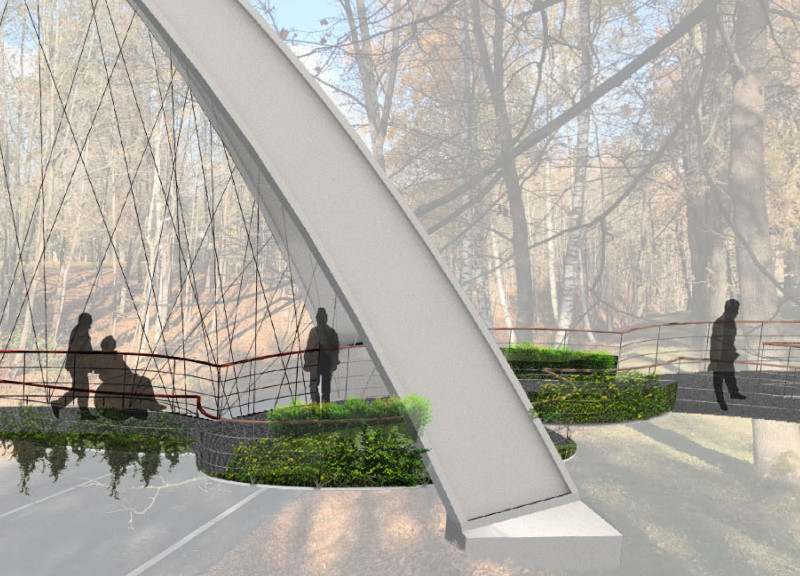5 key facts about this project
Design Concept and Materiality
The Archventure Bridge features a combination of arches and pathways that promote social interaction and exploration. The primary structure is composed of carbon steel tie beams, which ensure stability and support the overall weight of the bridge. The deck includes a 15 cm thick waffle slab made of galvanized steel, providing both durability and aesthetic integrity. Tension cables are strategically placed to maintain the bridge's unique curvature while offering an additional layer of support.
The project integrates native flora through the use of softscape planters that line the pathways. The inclusion of indigenous plants not only softens the hardscape but also reinforces the ecological focus of the project. This integration with local ecology highlights a commitment to environmental sustainability, making the bridge an example of how architecture can support biodiversity.
Unique Design Approach
The design of the Archventure Bridge stands out due to its emphasis on user experience and interaction with nature. Rather than a conventional straight path, the bridge utilizes sinuous walkways that encourage exploration. This design choice invites users to engage with the space at a leisurely pace, obtaining panoramic views of the Gauja River and its surrounding landscape.
Educational features, such as information kiosks, are incorporated into the design to provide users with insights about the local ecosystem. These elements contribute to a broader understanding of the relationship between architecture and environment. This unique approach fosters a sense of connection between community members and their natural surroundings, setting the project apart from other infrastructure developments.
In conclusion, the Archventure Bridge exemplifies thoughtful architectural design that prioritizes both functionality and ecological awareness. To gain deeper insights into this project, including its architectural plans, sections, and innovative ideas, readers are encouraged to explore the project presentation for additional details.


























